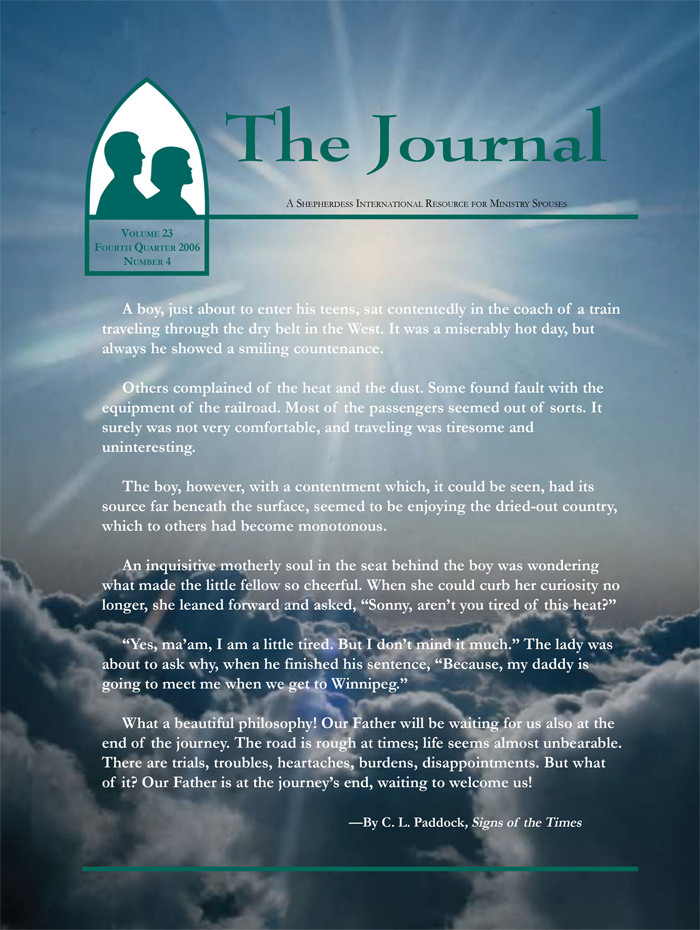He was the ugliest of men, and he had a request that seemed completely unacceptable.
He came to my desk holding the job application in his huge hand. I asked him to be seated, and his giant bulk filled the chair. Here was the ugliest man I’d ever seen, and his presence made me uneasy. I had never seen anyone so physically repulsive, and to think that he was applying for a job at the department store seemed completely unacceptable. In my ten years as personnel manager, I’d seen all kinds of applicants, but this was extraordinary, to say the least.
But, in response to my questions, his voice was surprisingly gentle, more sincere than most, and at the same time, more anxious. His application stated that he was employed by a carnival which was presently set up on the outskirts of town.
“You’re already employed,” I said to him, “so why is it that you’d like this temporary job at the store?”
“Well, sir,” he replied, “it’s just the kind of job I’ve always wanted.”
“There are many applicants for the job,” I told him. “The competition is very keen.”
“I know that,” he answered, his beady eyes searching mine. “But I’m willing to take the job without pay, and the hours won’t conflict with my job at the carnival.”
“Well,” I said finally, “if you should get the position, you’ll be paid at the advertised rate.”
He shrugged his gigantic shoulders. “I’d still want it if it paid nothing. I’ve never wanted anything more, sir—never in my whole life.”
I dismissed him then, advising him that he would be considered fairly along with the other applicants. At the door he turned and thanked me, his great ugly face sending shudders through me, and for the rest of the day I could not forget him. When sheer repulsiveness comes into your life, it is not easily forgotten. But there was more to this man than his pitiful, frightening features. His sincerity, his desperation, clung to my memory, and I was determined that he, as one of God’s creatures, was entitled to a fair opportunity. Perhaps I was being foolish, reckless even, to consider him, but there was nothing else I could do and still call myself a human being, just as he was.
All that night I couldn’t sleep; I kept thinking about this poor unfortunate creature who must have experienced great hardships in his lifetime because of his ugliness. I kept trying to imagine how disappointing life must have been for him, how frustrating, how loveless. Just the sight of him incurred loathing and banishment. He had to be an outcast, a target for ridicule to the apathetic and the uncompassionate of the world.
The next day I decided I had to see him in his own environment, so I went to the carnival grounds feeling like a spy. It was something I had to do before I decided which applicant would get the seasonal job. I had to see for myself what type of work this man with the beast-like features and the angel-like voice did.
After some searching and questioning, I was directed to a tent over which hung a sign reading: “THE HUMAN (?) BEAST.” Not wanting to think much about this distasteful announcement, I bought a ticket, went inside, and stood in the back row of a large group of curious people.
At last the lights dimmed and a spotlight played on a crudely built stage. In a few minutes he emerged from behind a curtain, and gasps of horror rose from the crowd. Children screamed, and mothers who should have known better than to bring them there in the first place, hugged them to their breasts.
He was painted unearthly colors, and his great bulk was bent under the weight of chains which surrounded his massive body. Back and forth across the stage he writhed, uttering deep gutteral groans and the snarls of a caged animal. He was indeed the beast he played, and my heart ached for this man who had sat before me only yesterday and pleaded for an escape, no matter how brief, from this agonizing role he played before a jeering and ridiculing mob of thrill-seekers.
The only time he seemed to break out of the frightening character was each time someone hustled a child from the tent. His sad eyes followed the children with sheer, unmistakable anguish.
I waited until the tent was emptied, then made my way inside the curtain, and found him. He looked at me in shame.
“I wish you hadn’t come here,” he said in that soft voice. “I wish—”
“If you still want the job,” I said to him, “it’s yours.” His giant head nodded in disbelief. “Oh, yes. Yes, I do.” “Then be at the store tomorrow afternoon at four,” I said. Again the great head nodded, and I left.
Next day, because of other duties, I wasn’t able to be at the store when he started on the job: I arrived at six o’clock and went directly to the toy department.
And there he was, surrounded by a great multitude of delighted children. The expressions on their faces told me that I had not made a mistake. The face which had brought jeers and hoots from so many others, so many times in his life at the carnivals, was now hidden behind a white beard, and his huge frame was clothed in a red and white suit. The eyes which had chilled people to the bone were no longer sad but filled with tears of joy as he took one child after another onto his lap, playing for them the wonderful, jolly Santa Claus they all loved and trusted.
Note: We were not able to contact the author of this article.
